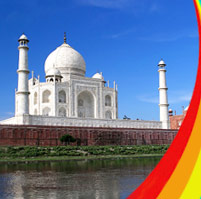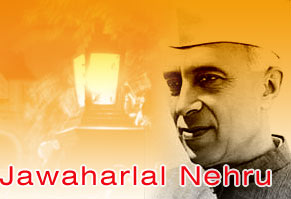Whenever one sets about assessing the life and works
of Jawaharlal Nehru, the realization invariably dawns that Nehru's
contribution to India's destiny as its first prime minister was in no
way less significant than his pivotal role in the freedom struggle. Come
to think about it, Nehru's very election as the prime ministerial
candidate was steeped in bitter controversy and his initial days in
office were marked by a wave of intense communal violence sweeping
across the country.
As being chosen as Independent India's first prime minister, Jawaharlal
Nehru addressed the Constituent Assembly of India on the eve of India's
Independence and in a soul-stirring speech entitled 'A Tryst with
Destiny,' he passionately enumerated the responsibilities that come with
freedom. Nehru envisioned a socialist India and the first step towards
this end was taken with the setting up of the Planning Commission of
India and the first Five-Year Plan in 1951.
Pandit Nehru realized that modernization and technological development
were vital to the growth of the nascent Indian economy and the
government took upon itself the task of establishing strategic
industries. Public sector enterprises became the pillars of the economy
while the government concentrated on providing electricity, healthcare
and roads to the rural population. Efforts were also made to augment
agricultural production and to alleviate poverty.
Simultaneously Jawaharlal Nehru's government invested heavily on
setting up of educational institutions of pre-eminence such as the All
India Institute of Medical Sciences, the Indian Institutes of Technology
and the Indian Institutes of Management. Nehru also envisaged plans to
ensure free and compulsory elementary education for rural children. He
espoused the doctrine of secularism and launched initiatives to improve
the status of socially disadvantaged groups.
Nehru was also India's foreign minister and under him non-alignment
became the guiding principle of India's foreign policy. Despite
entrenched acrimonies, he tried to improve India's relations with China
and signed the 1954 Sino-Indian treaty based on the tenets of Pancha
Sila. However due to his pacifist nature, needs of Indian armed forces
were put on the backburner and only the defeat of the Indian Army at the
hands of the Chinese in 1962 finally made him woke up to this reality.
This humiliating episode alone took much of the sheen from his
invaluable contribution to the nation as its prime minister.









